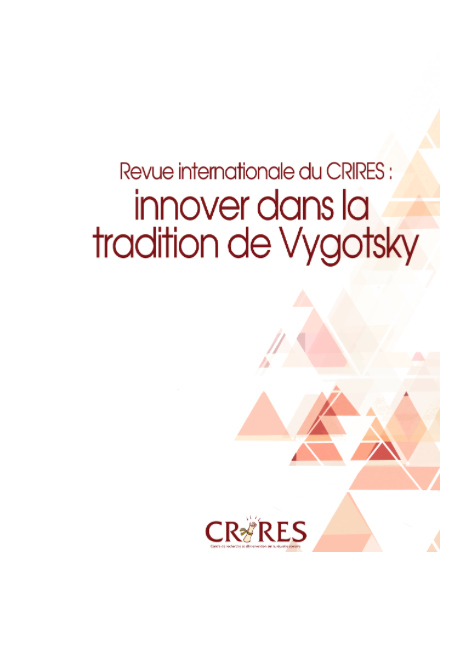Les conclusions formulées par Boyer et Bissonnette en 2021 sont valables en 2023 : une réponse au texte de Allaire et ses coll``egues (2022)
DOI :
https://doi.org/10.51657/ric.v7i1.51951Mots-clés :
enseignement à distance, école virtuelle, enseignement en présence, méthode d'enseignement, effets sur le rendementRésumé
Boyer et Bissonnette (2021) ont publié une synthèse de recherches ayant mesuré les effets de l’école virtuelle sur le rendement des élèves avant et pendant la pandémie COVID-19. Les chercheurs ont montré que les écoles entièrement en ligne produisent généralement des gains d’apprentissage nettement inférieurs à ceux des écoles avec brique et mortier. À la suite de cette publication, Allaire et ses collaborateurs (2022) ont réanalysé une partie de ces recherches et présentent différents arguments tentant d’atténuer l’inefficacité des écoles virtuelles. Dans cet article, nous reprenons chacun de ces arguments et nous démontrons qu’ils sont erronés, invalides et non autorisés. Par conséquent, nous considérons que les conclusions formulées par Boyer et Bissonnette, en 2021, sont tout aussi valides et valables en 2023!
Références
Allaire, S., Forest, M. P., Granger, N., Tremblay, M., Monney, N., Charland, P., Giroux, P. (2022). Un enseignement en ligne presque invisible : une réponse à Christian Boyer et Steve Bissonnette. Revue internationale du CRIRES : innover dans la tradition de Vygotsky, 6(2), 1-20. https://www.erudit.org/en/journals/ ric/1900-v1-n1-ric07387/1093007ar.pdf
Archambault, J. et Chouinard, R. (2022). Vers une gestion éducative de la classe. Chenelière Éducation.
Barbour, M. K. (2019). What virtual and blended education research reveals. Dans A. Molnar, G. Miron, N. Elgeberi, M. K. Barbour, L. Huerta, S. R. Shafer et J. K. Rice (dir.), Virtual schools in the U.S. 2019 (p. 41-83). National Education Policy Center. http://nepc.colorado.edu/publication/virtual-schools-annual-2019
Boyer, C., et Bissonnette, S. (2021). Les effets du premier confinement, de l’enseignement à distance et de la pandémie de COVID-19 sur le rendement scolaire – Après la pandémie, faudrait-il généraliser l’usage de l’école virtuelle à toutes les clientèles et en toutes circonstances? Éditions de l’Apprentissage. https://www.editionsdelapprentissage.com/ewExternalFiles/Les%20effets%20du%201er%20confinement.03mai2021.pdf
Boyer, C. et Morneau-Guérin, F. (2023). Les œillères d’un discours constructiviste — Les errances de Allaire et ses collègues (2022a) dans leur réplique au texte de Boyer et Bissonnette (2021) portant sur l’enseignement à distance et les écoles virtuelles. Montréal : Éditions de l’Apprentissage. https://www.editionsdelapprentissage.com/ewExternalFiles/Oeilduconstrutivisme.220123-28.pdf
Cavanaugh, C., Gillan, K. J., Kromrey, J., Hess, M., & Blomeyer, R. (2004). Effects of Distance Education on K-12 Student Outcomes: A Meta-Analysis. Naperville, IL: Learning Point Associate. https://files.eric.ed.gov/fulltext/ED489533.pdf
Fitzpatrick, B. R., Berends, M., Ferrare, J. J. et Waddington, R. J. (2020). Virtual illusion: Comparing student achievement and teacher and classroom characteristics in online and brick-and-mortar charter schools. Educational Researcher, 49(3), 161-175. https://doi.org/10.3102/0013189X20909814
Hirsch, E. D. Jr. (1997, 10 avril). Address to California State Board of Education. http://www.mathematicallycorrect.com/edh2cal.htm?fbclid=IwAR0qeHgAJxkD8ZfBhLx8jnY2PwyfBBbECvyY924SLC1QgKXegzB1Z7AvUY4
Martin, F., Sun, T., Westine, C. D. et Ritzhaupt, A. D. (2022). Examining research on the impact of distance and onligne learning: A second-order meta-analysis study. Educational Research Review, 36, 100438. https://doi.org/10.1016/j.edurev.2022.100438
Prettyman, A., & Sass, T. R. (2020). The Efficacy of Virtual Instruction in K-12 Education: A Review of the Literature. Georgia Policy Labs, Metro Atlanta Policy Lab for Education. https://gpl.gsu.edu/download/virtual-learning-in-k-12-education-literature-review/? wpdmdl=1952&refresh=603bfaae9bed31614543534
Téléchargements
Publié
Numéro
Rubrique
Licence
© steve bissonnette 2023

Cette œuvre est sous licence Creative Commons Attribution - Pas d'Utilisation Commerciale - Pas de Modification 4.0 International.

